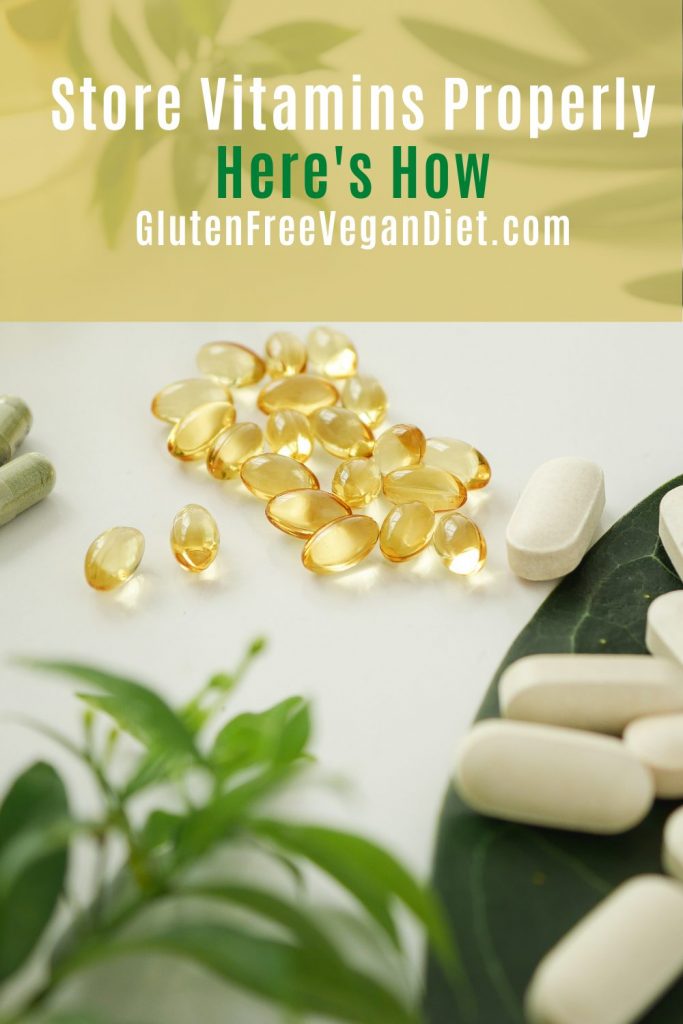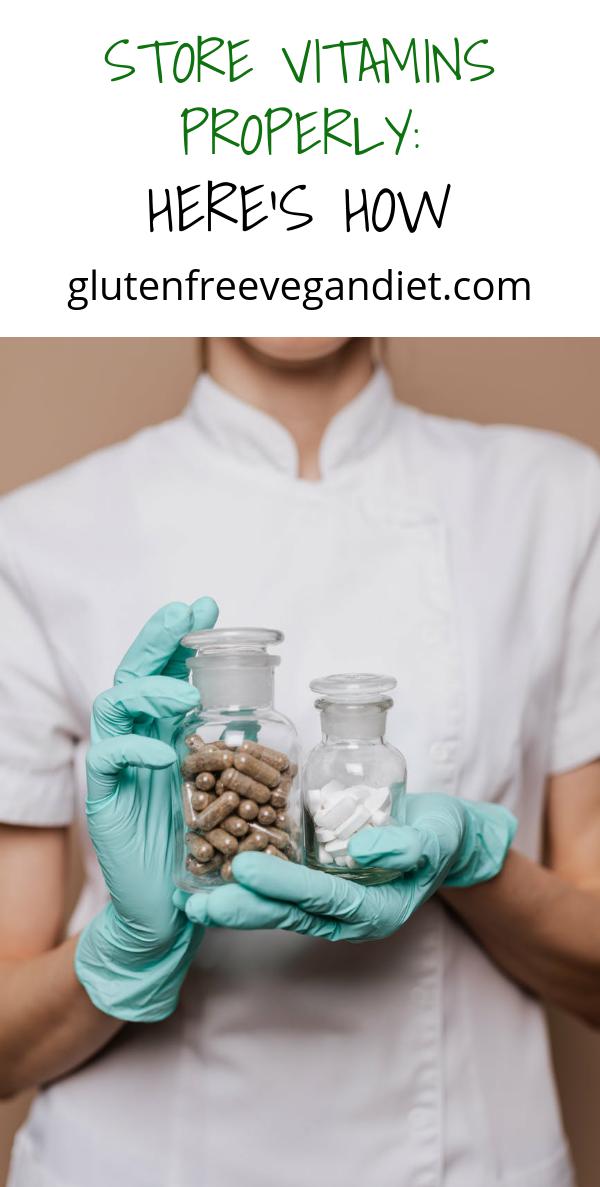![]() This post may be sponsored or contain affiliate links, which means we may receive a small commission, at no cost to you, if you make a purchase through a link.
This post may be sponsored or contain affiliate links, which means we may receive a small commission, at no cost to you, if you make a purchase through a link.
The information, including but not limited to, text, graphics, images and other material contained on this website are for informational purposes only. No material on this site is intended to be a substitute for professional medical advice, diagnosis or treatment. Read the full disclosure.
Are you storing your vitamins properly? The following is how to store vitamins properly. There are two main types of vitamins, water-soluble vitamins, and fat-soluble vitamins, and the way that the body does or does not store vitamin content taken from food depends on which type it is.
The body cannot store water-soluble vitamins and this means that a person needs to replenish their water-soluble vitamin intake on a daily basis. The eight B vitamins and vitamin C are water-soluble vitamins and the body cannot store vitamin content that is either of these.

It is not simply that the body cannot store vitamins that are water-soluble but also the water-soluble vitamins are easily destroyed by improper storage, handling, or cooking of foods that contain these vitamins.
One example of destroying by cooking is the overcooking of vegetbales we eat. It is important not to overcook vegetables by boiling as the water-soluble vitamins are in effect washed out of them but this lack of being able to store vitamins that are water-soluble can be overcome by light cooking or steaming and by using the water that vegetable has been cooked in the form sauces and gravies.
Since the body cannot store vitamin C or the other water-soluble vitamins it is essential to eat a balanced diet with at least 5 portions of fruit and vegetables to ensure that enough vitamins are available for the body to use when necessary and a person does not suffer from a vitamin deficiency due to the body’s inability to store vitamin content.

On the other hand, the body can store vitamin content that is fat-soluble. The body will store vitamin content in the fat cells so that it can be used when required and a person does not need to consume as many of these fat-soluble vitamins on as frequent a basis as they do with water-soluble vitamins. The fat cells store vitamin A, D, E, and K as these are all fat-soluble vitamins.
It is also important to store vitamin supplements correctly to ensure that the beneficial qualities of these are not diminished.
So what’s the best way to store? The best way to store vitamin supplements is in a container with a screw-top lid and to keep the container in a dry place. When storing vitamin supplements for any length of time, it is also essential to check that they have not been kept longer than the expiration date. The vitamin content of supplements cannot be guaranteed if you store vitamin tablets past their use-by date.

We hope you’ve found this information helpful in learning how to properly store your vitamins. Leave us a comment below. You can also contact me directly if needed.
If you aren’t using vitamins in your health regime, I encourage you to learn more and understand that today’s food supply does not contain the proper nutrition we ultimate need today. The Essential Guide to Vitamins, Minerals and Herbal Supplements

